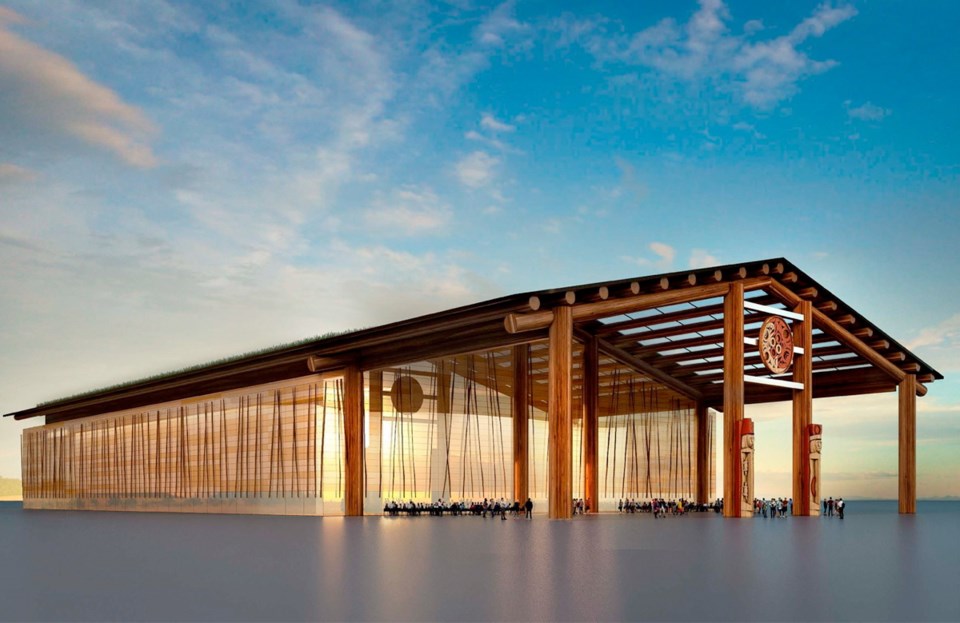Nanaimo’s rejection of an $80-million event centre is as much a no-confidence vote in its council as it was about turning down the development, centre opponents say.
“It became a vote on the competence of our city council and the lack of confidence our voters have,” said Don Bonner, chief spokesman for the Vote No campaign.
“Our council is probably one of the most dysfunctional city councils on record,” said Bonner, who is planning to run for council in the next municipal election in October 2018.
Results released on Saturday showed 19,179 votes against a plan for the municipality to borrow up to $80 million for a downtown waterfront event centre; 4,706 votes were in favour.
The centre would have provided 5,700 seats for hockey and 7,100 seats for concerts.
It would have replaced the 2,400-seat, 50-year-old Frank Crane Arena, used for hockey, which is in need of repairs.
Critics of Nanaimo council point to a number of recent incidents, including:
• A lawsuit filed in December by the municipality against Mayor Bill McKay, alleging he provided confidential information to a former municipal employee, in contravention of B.C.’s Community Charter and its privacy legislation.
• Complaints from a bureaucrat who was allegedly shoved by a councillor.
• A conflict allegation involving McKay and his dealings with Clipper Navigation Inc., one of the potential providers of a passenger ferry service.
• An incident where a councillor lost his temper in a meeting and told the mayor: “Bite me.”
• A leaked letter where the mayor accused other councillors of being mentally ill or bullies. The letter was written to a mediator who was paid $50,000 to help councillors get along.
Despite those incidents, Nanaimo councillors and some residents disagree that their city council has become dysfunctional.
Coun. Gord Fuller, who told the mayor to “bite me,” said the council has been mostly effective.
“There may be a few members who are dysfunctional, but the balance of council has moved forward with everything it set out to do,” said Fuller.
As an example, he pointed to a review of services and expenses of Nanaimo’s municipal government. It’s half done and will save taxpayers millions, he said.
But Fuller agreed that the referendum campaign was particularly “nasty.”
“Someone even threatened to burn down my house,” Fuller said.
Coun. Bill Bestwick, who supported the event centre, also said the referendum became ugly, saying citizens subjected him to abuse.
Bestwick and Fuller, who objected to the notion that the referendum was an expression of dissatisfaction with council, said a more likely reason for the vote result is that Nanaimo residents are still reeling from their last major expenditure, a $72.5-million conference centre that has been a drain on taxpayers since it opened in 2008.
They noted that many of the biggest opponents to the event centre were boosters of the conference centre when it was proposed.
In rejecting the suggestion that council is “dysfunctional,” Bestwick pointed to problems in other municipalities, including Lantzville, where the council lost four of its seven members when they quit after complaining of an unhealthy atmosphere. That forced byelections in 2015.
Bestwick cited Victoria’s handling of the Johnson Street Bridge replacement, now years behind schedule, and the departures of the last two Victoria police chiefs.
He also pointed to the millions of dollars spent as the Capital Regional District delayed building a sewage treatment plant, despite orders from the province to get on with it.
“How did Victoria get away with [sewage delays] for all those years?” asked Bestwick.
“And here we are getting hammered for trying to build an event centre.”
Jan Peterson, a Nanaimo resident, historian and author of a three-volume history of Nanaimo up to 1967, said the city has always been uncertain of what it wants to be or become, and the latest referendum rancour is a symptom of that.
Nanaimo was built on coal mining, which was displaced by forestry, the pulp and paper industry and fishing. Now, it’s not sure if it should become a high-tech centre, a satellite of Vancouver linked by a ferry — or a tourist destination, he said
“Nanaimo always seems to be in transition,” Peterson said. “It’s still growing and hasn’t really come up with an identity for itself yet.
“Everything that Nanaimo has ever done, Nanaimo has fought over.”



